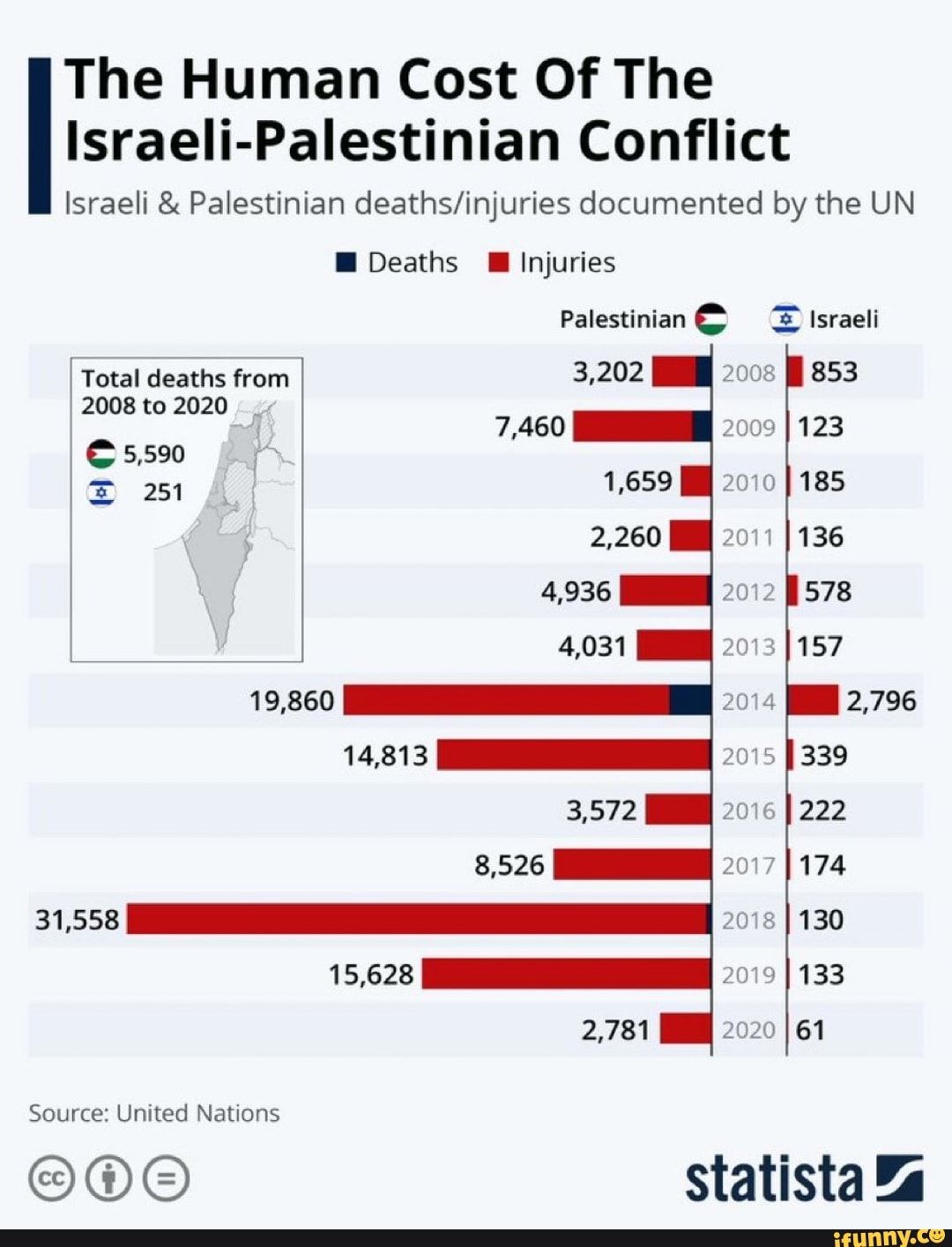Into the Abyss with Israel and Hamas
How not to become the monster you seek to destroy. Observations on the imminent apocalypse in the Middle East.

It’s sickening. Most horrifying for me were the scenes from the Nova music festival where 260 festival-goers were hunted down and slaughtered. It’s the kind of celebration I might have attended. I want to be affected by that. To be insensitive to such wanton cruelty would be inhuman, and I refuse to relinquish my humanity. So many vignettes of violence are flashing across the social media feed. It’s heartbreaking. But the tragedy would be made worse if we were to look away.
When you open yourself to caring about other human beings simply because they’re human it’s not like there’s a geography filter, or an ethnicity filter, or a religion filter. These are incidentals, accidents of birth and happenstance. What we have in common as human beings runs much deeper. If injured, we bleed; if amused, we laugh. And if wronged, we seek revenge.
I’m appalled by the people who do turn away. People who parade their ignorance under the banner of being too sensitive to inform themselves. People who take the easy way out, unthinkingly waving a flag and parroting the party line. People who numb themselves to the suffering of others. And all the blurring of bloodied bodies on the evening news! It makes violence more palatable for the viewing audience, comfortably ensconced on their couches. But who is deciding what’s blurred and what is not? Should violence ever be made palatable? Who really benefits from sanitizing the carnage?
There’s no excuse for 7 October’s barbarity. But responding intelligently, we need to understand it. We’ve been here before. Already, explanations are being cast as hapless attempts to excuse and justify. Acknowledging our common humanity interferes with the exercise of vengeance—and thus arises the need to dehumanize the enemy. Israeli Defense Minister, Yoav Gallant expressed it succinctly:
We are fighting against human animals and we are acting accordingly.
— Yoav Gallant, Israeli Defense Minister, 9 Oct. 2023
The peril of course is that in “acting accordingly” you become what you seek to destroy. “He who fights with monsters should be careful lest he thereby become a monster. And if you gaze long enough into an abyss, the abyss will also gaze into you.”
While Hamas could never hope to defeat the IDF, and its attack was predictably catastrophic for ordinary Palestinians, by behaving monstrously they provoked the Israeli monster. Hamas has incited the Israelis to inflict on themselves a trauma they could never have hoped to cause militarily.
Context
Narrowing our view to the atrocities of 7 October, distinctions become stark. Armed terrorists massacring civilians and children, hostages taken... It’s easy to be swept up in the clarity of black and white, the moral certainty of righteousness and the intoxicating rush to vengeance.
However, the heinous attack took place in a context, and if we’re to understand—rather than blindly lashing out—we do need to examine it. The context is not hard to discover, if you want to. There are libraries full of books about it. Here, I will call attention to some of the historical and political context which seems most immediately relevant. It’s not a book I’m recommending, though, it’s a video from Dr. Gabor Maté. Go ahead and take a look. I’ll wait.
Historical Context
And there’s no way you could have ever created a Jewish state without oppressing and expelling the local population, which is what they did [beginning in] 1947... And then in 1948, Jewish Israeli historians have shown without a doubt that the expulsion of the Palestinians was persistent, it was pervasive, it was cruel, it was murderous, and with deliberate attempt.
— Dr. Gabor Maté
Nahal Oz is one of the kibbutzim bordering Gaza that has just suffered the bloody massacre of over one hundred of its members. It was there, in 1956, that Moshe Dayan, then the IDF Chief of Staff, delivered a famous eulogy for a young resident who had recently been ambushed and killed, Roi Rotberg. It’s worth reading in its entirety. Speaking of the killers, Dayan’s words were prophetic:
Let us not cast the blame on the murderers today. Why should we declare their burning hatred for us? For eight years they have been sitting in the refugee camps in Gaza, and before their eyes we have been transforming the lands and the villages, where they and their fathers dwelt, into our estate. It is not among the Arabs in Gaza, but in our own midst that we must seek Roi’s blood. How did we shut our eyes and refuse to look squarely at our fate, and see, in all its brutality, the destiny of our generation?
— Moshe Dayan, 1956
But while he called for perpetual vigilance, he must not have anticipated that every successive generation would share the same fate. He added, “Let us not be deterred from seeing the loathing that is inflaming and filling the lives of the hundreds of thousands of Arabs who live around us.” And 67 years later that loathing, its hour come round at last, exacted its vengeance a hundredfold.

The eulogy merits including here because there are those who are ignorant of this historical context, or deny it, or dismiss it. There were over 700,000 Palestinians expelled in 1947-1949 alone, in a premeditated campaign of violence. Dayan, who lived that history, who was personally responsible for it, understood perfectly clearly the nexus between Israeli treatment of Palestinians and the seething hatred it engendered.
It’s one thing to witness that loathing and use it to fortify one’s Zionist resolve; quite another to allow oneself to be moved by it to compassion for the Palestinians whom you have dispossessed. Palestinians have to be “human animals” because to acknowledge their humanity would mean admitting your own inhumanity towards them.
That displacement has been documented by the Israeli historian Ilan Pappé in his book The Ethnic Cleansing of Palestine. (Full book in PDF format.)
Incidentally, that ethnic cleansing isn’t merely a (contested, of course) historical fact. The policy has been ongoing and incremental. With the world’s focus currently on Gaza, armed groups from the illegal Israeli settlements in the West Bank have stepped up the pace of their expulsions—with the tacit and open support of the government. It is happening as you read this.
Are the terrorist acts of Hamas comparable to Israel’s violent expulsion of the Palestinians? Each is bad in its own way. Every evil is viewed as cruel by the people upon whom its visited. To carp of false equivalence is to miss the point. An atrocity cannot be made less evil by comparison to some other atrocity. Understanding the anger towards Israel does not in any way excuse the horrifying acts of Hamas. We should be extremely careful of people who blur the distinction between understanding something and excusing it.
That said, if we were to take a step back and compare them, during the last 75 years of Israel’s existence it too has been cruel—and if we tally the killings and woundings it falls much more heavily on Israel. The chart below gives a sense of the numbers just since 2008.

It’s no surprise that deaths and injuries are disproportionate. Official Israeli policy since at least 2008 has been to inflict disproportionate punishment. The Dahiya doctrine is...
... a military strategy of asymmetric warfare, outlined by former Israel Defense Forces (IDF) Chief of General Staff Gadi Eizenkot, which encompasses the destruction of the civilian infrastructure of regimes deemed to be hostile as a measure calculated to deny combatants the use of that infrastructure and endorses the employment of "disproportionate force" to secure that end.
— Wikipedia, Dahiya doctrine
And that has entailed targeting civilian infrastructure and, as shown in the chart above, thousands of civilian injuries and deaths. It’s apparent the Dahiya doctrine is being applied in the current conflict in Gaza. Although one might make a purely military case for such a doctrine—in the short term it’s effective—it obviously has moral implications, ramifications under international law, and negative long-term consequences.
Needless to say, Hamas has also committed despicable acts and war crimes, and the 7 October attack was certainly not the first or only instance of that. They have a long history of attacks on Israeli civilians.
Nevertheless, a war crime committed by one side does not justify a war crime committed by the other. The same standard must apply to both sides. If we don’t uphold a consistent moral principle we devolve into justifications and condemnations based on a primitive tribalism.
Political Context
It may come as a surprise to learn that Benjamin Netanyahu, the Prime Minister, has been a Hamas supporter.
“anyone who wants to thwart the establishment of a Palestinian state needs to support strengthening Hamas. This is part of our strategy, to isolate Palestinians in Gaza from Palestinians in Judea and Samaria.”
— Benjamin Netanyahu, March, 2019
This was the Netanyahu doctrine. The goal was to prevent the establishment of a Palestinian state, and the tactic was to strengthen Hamas—the classic strategy of divide and conquer. “In 2018, for example, [Netanyahu] agreed that Qatar would transfer millions of dollars a year to finance the Hamas government in Gaza.” That Hamas was a murderous band of fundamentalist zealots was no secret, but for Netanyahu that was more a positive than a negative. With Hamas installed in Gaza (they were elected in 2006, and there’ve been no elections since), it was possible to stymie negotiations with any Palestinians, effectively making a peaceful settlement impossible.
Now that the policy has blown up in his face, Netanyahu is singing a different tune. The group he previously strengthened he now refers to as “bloodthirsty monsters,” and “the new Nazis. Hamas is ISIS – in some instances, worse than ISIS.”
By impeding efforts to forge a peaceful political solution, Israel made violence inevitable. Again, that does not excuse the horror inflicted by Hamas. But if what we seek is understanding, we must acknowledge these inconvenient facts.
Binary Thinking
Binary thinking makes us vulnerable to manipulation. “You’re either with us, or you’re with the terrorists,” was George W. Bush’s simple-minded formulation as he prepped the nation for the disastrous invasions of Afghanistan and Iraq. Make the choice as simple as possible; and if necessary, back it up with a threat.
We must recognize that painting entire groups with a broad brush based on the actions of a faction subverts understanding. Not every individual within a group holds the same beliefs or supports the same actions.
For instance, not every Jew or Israeli is a Zionist, and not all of them support Israel’s implementation of the Dahiya doctrine in Gaza. Similarly, waving a Palestinian flag doesn’t necessarily imply support for Hamas nor their murderous attack on 7 October. These are critical distinctions.
Reducing complex issues to binary viewpoints, such as branding all critics of Zionism or Israel as antisemitic, or holding all Palestinians responsible for the actions of Hamas, oversimplifies the situation. This reductionist, binary thinking is the enemy of understanding and it is dangerous. It can easily lead to an escalation of the conflict’s intensity and its spread to other areas.
Another example: the Harvard University students who signed the letter with the inflammatory statement that “we... hold the Israeli regime entirely responsible for all unfolding violence.” Entirely responsible... Really! Any atrocity in the fight for liberation is beyond reproach? This is the all or nothing language of simpletons. It is also, not coincidentally, the hallmark of the critical social justice ideology that has seized control of America’s elite universities. The blowback to that brash and morally repugnant statement has been swift and severe. Hopefully this marks the beginning of the end of the ideology’s indulgence and influence.
If you’re opposed to terrorism, if you’re opposed to state policies of ethnic cleansing, the solution in both cases is to reject the comforting simplicity of binary thinking, detach from the emotional reactivity, and lean into the complexity that is reality.
Disinformation
When blood runs hot, we tend to disconnect the rational mind. That makes it easy for our best intentions to be hijacked. Because of something called “belief perseverance” we have a strong tendency to continue believing the first thing we hear, and to disregard or discount subsequent contradictory information. Clever propagandists take advantage of this human foible by quickly publishing inflammatory false claims. It doesn’t matter that later they are proven false, and must be walked back. By the time that happens, they will have served their purpose.
In navigating the maelstrom of propaganda we’re engulfed in, the best thing we can do is avoid the rush to judgement. Even absent deliberate deception, often the first version of a story is flawed, or just plain wrong. Don’t let yourself be railroaded into taking some action or making some decision while you’re feeling emotional. Wait until facts have been independently confirmed—or proven wrong. Go for a walk.
The story of the decapitated babies of Kfar Aza is a good example.
The story was quickly proven to be false. One wonders whether inventing infant decapitations was even worth the effort, since Hamas was already genuinely guilty of gruesome acts, many of which they live-streamed themselves. It worked so well, though, that the President of the United States ended up repeating the falsehood on television, stating he had personally seen pictures of decapitated children. Was that a lie? Or was it simply that he believed the story so strongly that he convinced himself it was true? The irony here is that the Biden administration has been censoring social media platforms, arrogating to itself the right to tell us what is and isn’t true. Clearly, they are just as easily deceived as anyone else.
The answer, ultimately, isn’t going to be surrendering our duty to discern truth to governments, corporate media giants, or clever AI algorithms, but rather becoming more sophisticated interpreters of online discourse ourselves.
TL;DR
• Feel the feelings, deeply. Don’t look away.
• Delay making judgements or taking actions until emotions have subsided. When encountering binary narratives, ask what information or perspective is being omitted.
• Inform yourself about the historical and geopolitical context in which events are happening. Deliberately seek out independent news sources with different viewpoints.
• Be extremely skeptical of inflammatory stories in the media.
• Actively engage friends and associates in honest and respectful dialogue.
*updated 23/02/2024 with new video of Gabor Maté.
